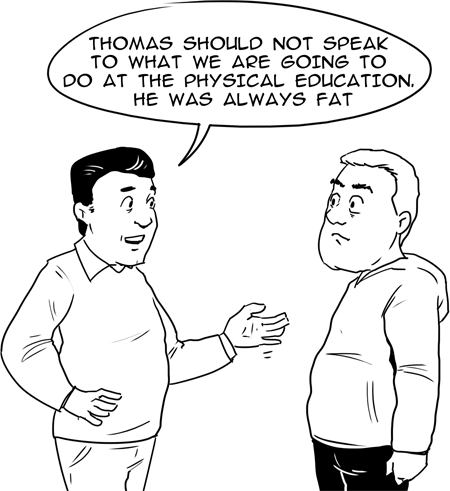Critical thinking
This topic shows you how to think critically, find hidden contexts and read between the lines
Logical fallacies appealing to prejudice
Our prejudices are illogical sentiments based on emotions, ignocance and fear of unknown. They do not allow us to consider things rationally and clearly. We know two basic types of prejudices – the first type tries to attack the person directly and second type, which is, metaphorically said, poisoning of the well.
First type - ad hominem and its subtypes - tries to oppose the argumentation by pointing at someone’s - real or imaginary - imperfections. The aim of this is to distract attention from discussion of the problem itself to discussion about good or bad characteristics of opponent.
Example:
“Thomas should not speak to what we are going to do at the physical education. He was always fat.”
Explanation: The fact Thomas was fat in the past has nothing in common with his capability to plan educational activities.

Second type “poisoning the well” tries to profane the argument by saying it belongs to certain unpopular group. The best known example is so called reductio ad Hitlerum bound to Nazis and Nazism.
Example:
“Vegetarians are strange; do you know that Hitler was vegetarian too?”
Explanation: The same approach is possible to be applied to any negative movement, group, community or person. It stands on logical fallacy that if something was supported by Nazis (Communists, Maoists, etc.) it has to be automatically bad. It also works other way round. If somebody was against Nazis/Communists etc., he would have been automatically a good guy.
Example:
“Atheists are amoral, Stalin was also atheist.”
Explanation: Fact that Stalin was atheist, has nothing in common with other atheists.
Example:
“Joseph was a very good person - he was fighting against Nazis.”
Explanation: Fact that Joseph fought against Nazis does not make him automatically a good person

